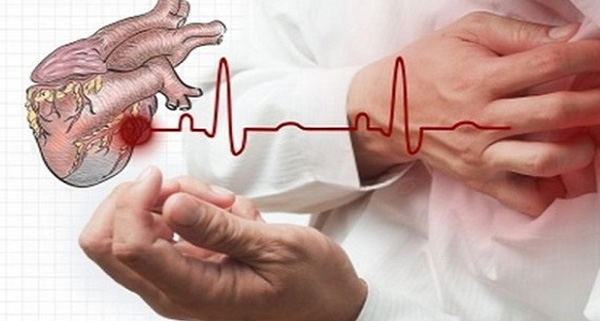Indians are more susceptible to premature death due to heart attacks and strokes owing to genetic factors as compared with people of other nationalities, reported a local newspaper quoting specialist doctors from United Arab Emirates.
In addition to genetic factors, stress and lifestyle also contribute to the problem of heart attacks and strokes of people from India.
Dr Dinesh Babu, a consultant of cardiovascular disease in Abu Dhabi told Gulf News “Indians are more likely to be affected by cardiovascular diseases at an earlier age as compared to Westerners. In the West, the onset of heart diseases usually occurs in the 60-70 age group but in the Indian subcontinent, heart disease sets in people in their 40s and 50s. Studies conducted on Indians living in the US, Canada, Europe and Singapore have established this.”
The World Health Organisation's (WHO) global disease statistics show cardiovascular diseases, including brain and heart attacks, as the two major causes of premature loss of life. The underlying reason for both health crises is due to the narrowing of these blood vessels owing to cholesterol deposits.
Indians are vulnerable to higher obesity ratios in the abdominal region, Dr Babu said. Even diabetes and high blood pressure are more common in the Indian population as compared to Westerners, he said.
People of India have smaller arteries
Dr Paul S. Thoppil, a cardiologist in Abu Dhabi, said genetically speaking, people from the subcontinent have smaller arteries. This compounds the problem of cholesterol deposit.
His patients, who are mostly in the age bracket of 32-45 have shown a higher incidence of the problems and the number of cases between the ages of 35 and 40 are also increasing. He also said that there are cases of these conditions striking people below the age of 30 as well.
“An important aspect that people should keep in mind is that neglecting routine medical check-ups can have bad consequences. Youngsters are particularly vulnerable as they don’t go for check-ups believing that age is on their side. But with the current stress levels, poor diet and sedentary lifestyles led by many youngsters, and given the genetic predisposition to the narrowing of the arteries and consequent heart problems, they need to be very vigilant regarding their health and lifestyle,” he advised.
Industrialisation and globalisation are some of the significant factors that have contributed to Indians becoming more prone to heart attacks and strokes, exacerbating the genetic predisposition. Unhealthy eating patterns, lack of exercise and smoking that have led to an epidemic of conditions such as diabetes, high blood pressure and high cholesterol.
People must become more aware of how to take charge of their mental and physical well-being, he said, in order to lead a better quality of life.
Health precautions
1. Lead a healthy lifestyle with a proper diet and regular exercise. If you do not have time for organised exercise, build in daily physical activities into your routine such as taking the stairs instead of the elevator, or parking your car at least a 10-minute walk away from your destination.
2. Getting more physically active helps you detect any underlying symptoms of bad health. For example, if you experience pains in the chest or related symptoms, while working out, they could be early warning signs; go for a medical check-up.
3. Make time for relaxation. If you are always running after making money, you will end up overworked and stressed.
4. Avoid smoking.
5. Know your numbers. Go for preventive check-ups to know your Body Mass Index (BMI) and waist circumference (to determine your obesity level), blood pressure, blood sugar and cholesterol. Make every effort to keep within the healthy range.
6. If you have a family history of heart or brain diseases, go for a check-up irrespective of your age. If your father or brother had a heart or brain attack, you are also vulnerable.
7. If a heart or brain attack occurs, the first hour is called ‘golden hour’ in which timely medical help can save the life. Immediately call for an ambulance and rush the patient to a speciality hospital.
8. Youngsters have to take special care as their heart is still young and if they suffer a sudden heart attack (Sudden Cardiac Death or SDC), it may be fatal.




